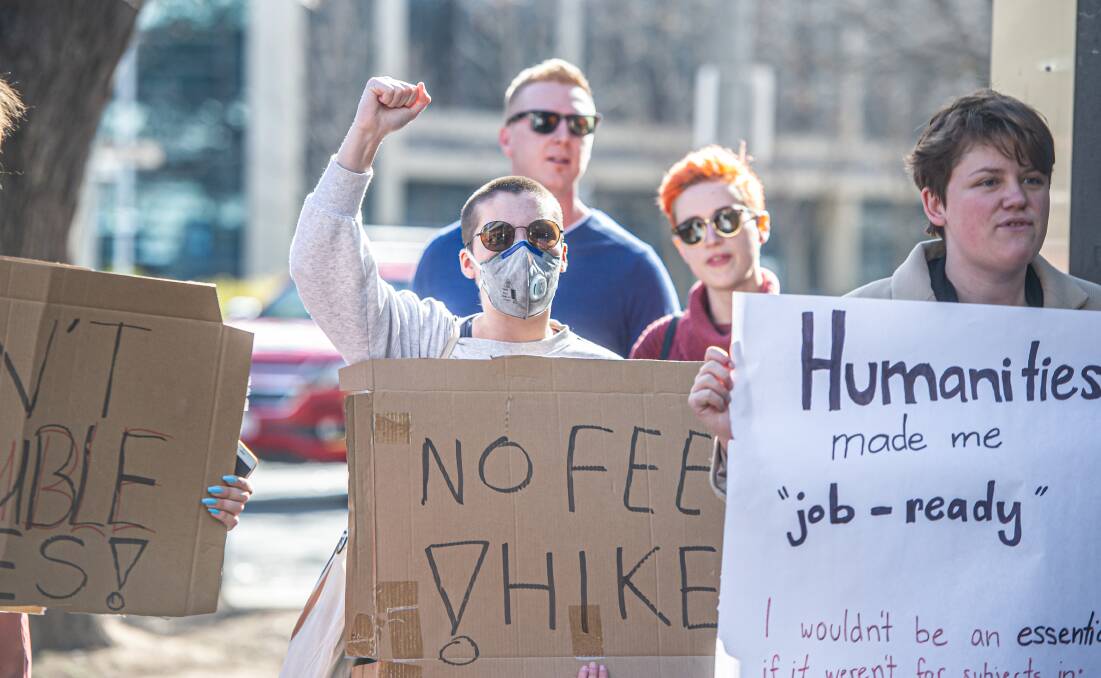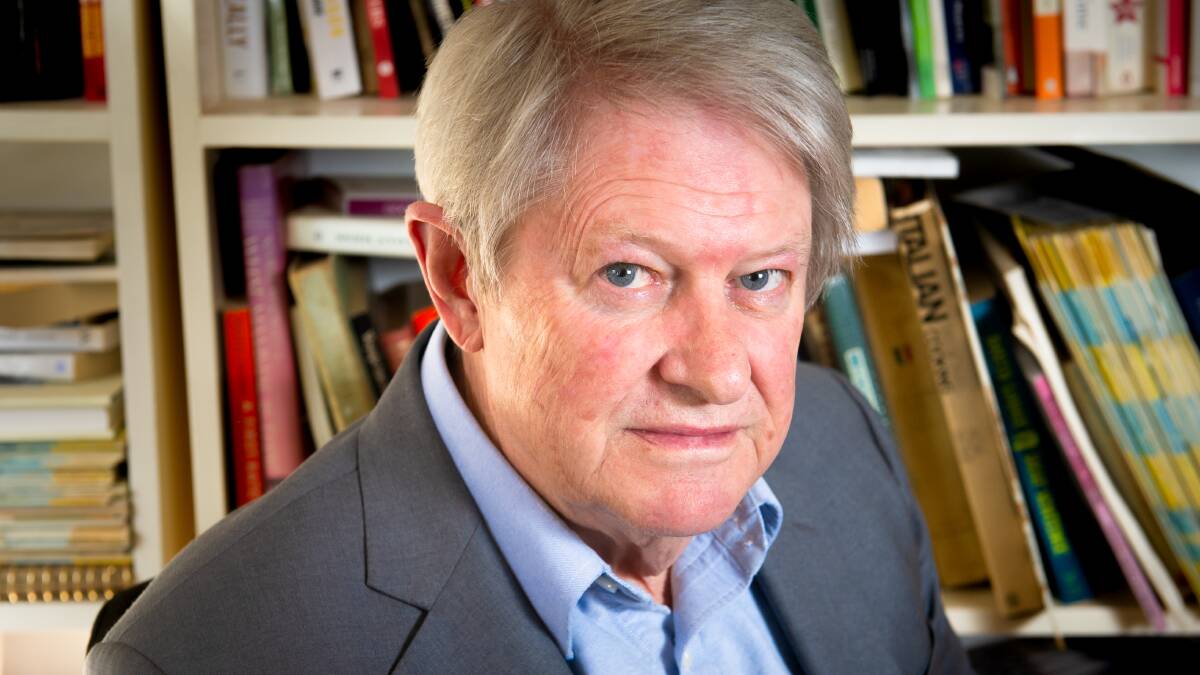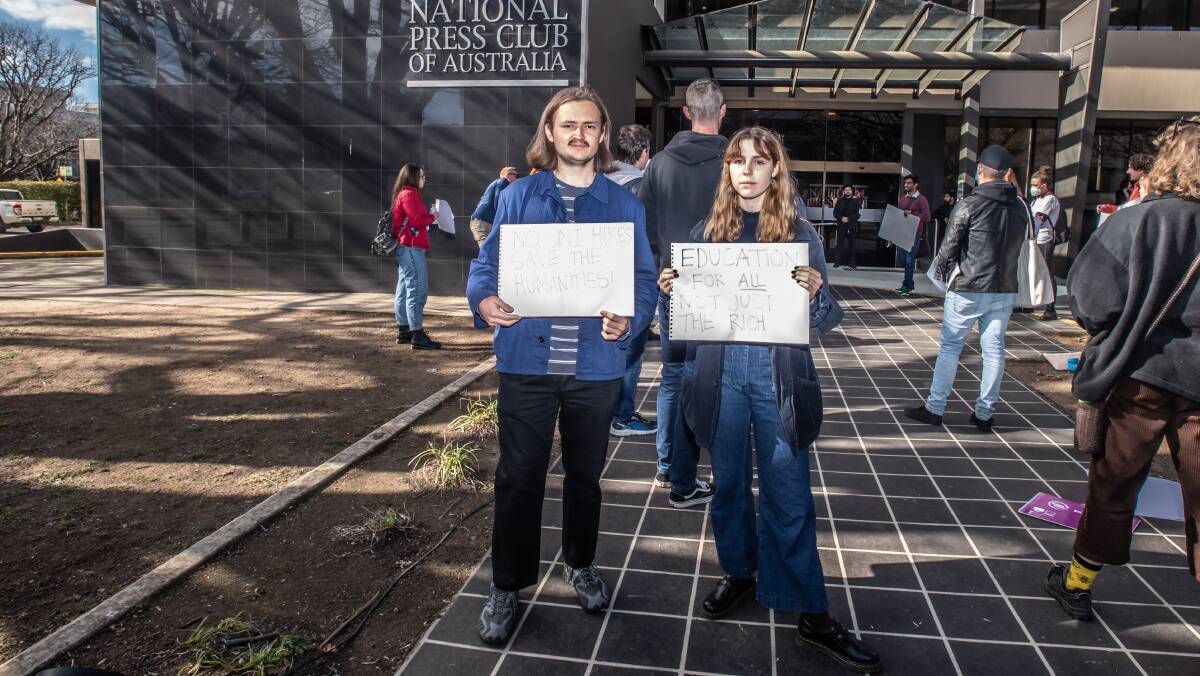
A leading economist says changing the cost of university courses is unlikely to influence what students want to study, while some fear humanities will become a domain for the elite when fees more than double.
Subscribe now for unlimited access.
or signup to continue reading
On Friday education minister Dan Tehan told the National Press Club course fees would be altered with an aim to driving students into areas where job opportunities were expected to grow.
Students studying teaching, nursing, clinical psychology, English and language will pay 46 per cent less for their degree. Those studying science, health, agriculture and maths will pay 62 per cent less for the degree.
Students studying humanities will face a 113 per cent increase in costs and law and commerce degrees will see a 28 per cent price hike.
Economist, professor Bruce Chapman, who was the architect of the Higher Education Contributions Scheme (HECS), said evidence showed changes in course costs were unlikely to change student demand.
"It's hard for me to believe this will fundamentally change the make-up of the student body. I'd also add that even though there are courses which had very large increases like humanities, I don't think it's going to have any effects on stopping people coming in."

Professor Chapman said the nature of income contingent loans meant decisions were made almost without reference to the price.
"What is going to happen to you in a price sense is extremely unimportant in 12 years' time," he said.
"The number of places is determined by the government, it's determined by how much they want to spend, not people's preferences with some kind of imaginary supply and demand curve."
READ MORE:
Australian National University literary studies lecturer, Dr Russell Smith, said he was stunned by the announcement.
"I think humanities degrees will always have a great deal of practical value and I think students will always understand that," he said.
"It seems to be a kind of crude carrot-and-stick way to force a kind of response or force students to select particular career paths based on government projections on where jobs will be."
Mr Tehan said if students were studying arts, he wanted to encourage them not to "silo their degree" to ensure they had skills to enable them to get a job.
Dr Smith said in his experience most students were already doing this by selecting majors and minors from different faculties. He was concerned the price hike could deter less well-off students from studying humanities courses.
"It could turn humanities into an elite choice for students from wealthier backgrounds as a marker of their privilege rather than being open to everybody and having that broad utility to create all types of careers for themselves."

At a rally outside the National Press Club, fifth-year arts-law student Imogen McKay shared these fears.
"I think they're very clearly targeted at locking out people from working-class and marginalised backgrounds. Particularly, law at ANU is already a very elite discipline and a very elite profession. And I think this is a very deliberate tactic to keep it that way," she said.
Fourth-year arts student Thomas Redmayne, who moved from the Hunter Valley to study in Canberra, said he would have reconsidered his choice of degree if the price was more than double.
"Coming from a rural area, there was already a stigma around doing arts degrees and them not being worthwhile and then coupling that with the sort of high economic cost of doing them I would have definitely reconsidered," he said.
"I think doing an arts degree you get a really well-rounded education that other degrees don't let you have."


